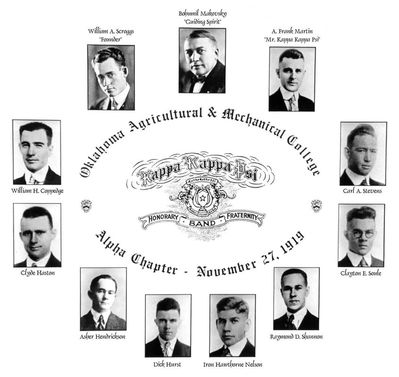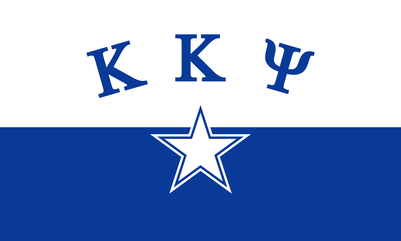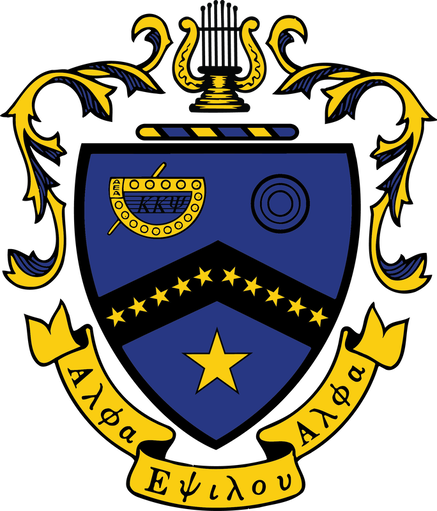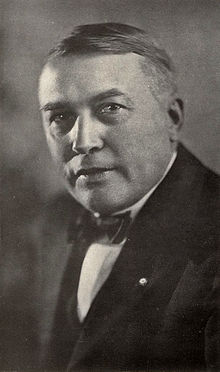National History
|
In the years that followed World War I, a movement developed among college and university bands, searching for a motivating force that would create a greater interest in band music. This movement sought expression in an effort to develop good will, fellowship, and understanding among bands and their members, as well as to recognize the value of dedicated leadership. Seizing upon this idea, ten members of the Oklahoma A & M College (later to be known as Oklahoma State University) Band, led by William Alexander Scroggs and their director, Bohumil Makovsky, drew up a plan for a national honorary society for college bandsmen.
Director Makovsky selected nine men to work with Scroggs to organize the first local club. These ten charter members were: Andrew Frank Martin, Raymond David Shannon, Clyde DeWitt Haston, Clayton Everett Soule, Carl Anderson Stevens, William Houston Coppedge, Dick Hurst, George Asher Hendrickson, and Iron Hawthorne Nelson. Officers for the local club were elected, and William Scroggs was elected as president. With the local organization complete, a corporation was formed which petitioned the Oklahoma Corporation Commission for a charter. The charter was granted November 27th, 1919, and "Kappa Kappa Psi, Honorary Fraternity for College Bandsmen", was established on the Oklahoma State University campus with the local group being known as the "Alpha Chapter." |




